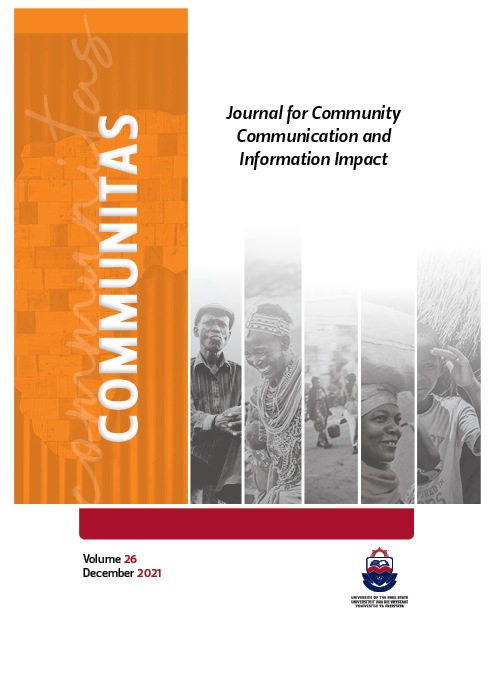Facilitating inclusive citizenry engagement in a provincial government
DOI:
https://doi.org/10.38140/com.v26i.5262Keywords:
Strategic communication, Inclusive citizenry engagement, Governance, Sustainability, Participation, Government communicationAbstract
The study provides a narrative exploration of the contribution and accentuated value of strategic communication management (SCM) in facilitating and fostering inclusive citizenry engagement through bottom-up constructed governance initiatives and citizenry-oriented sustainability programmes, using the North-West Province of South Africa as the research context. The study ponders on how a provincial sphere of government, as empowered by the national sphere, uses strategic communication to identify and address citizenry needs, interests and expectations from a participatory perspective. The objective was to determine the extent to which SCM enables purposeful and deliberate bottom-up centred public participation opportunities for inclusive citizenry engagement to be realised. Qualitative focus group and semi-structured interviews enabled the study to interrogate and advance how strategic communication can be positioned to attain, promote and encourage ongoing engagement opportunities that are poised as more inclusive and that are premised on the idea of co-governance and citizenry-grounded sustainability programmes. The study found that provincial government communication was simply operational in nature, and more often, performed and facilitated without a strategic purpose nor deliberate intention by hemispheric and less-skilled communicators with little regard for communication management theory. Consequently, little evidence exists on how citizenry interests are identified and addressed to encourage the necessary responsive actions by ordinary citizens.
Downloads
##submission.downloads##
Published
Issue
Section
License
Copyright (c) 2022 Tsietsi Mmutle, Prof. Estelle de Beer

This work is licensed under a Creative Commons Attribution 4.0 International License.
All articles published in this journal are licensed under the Creative Commons Attribution 4.0 International (CC BY 4.0) license, unless otherwise stated.









